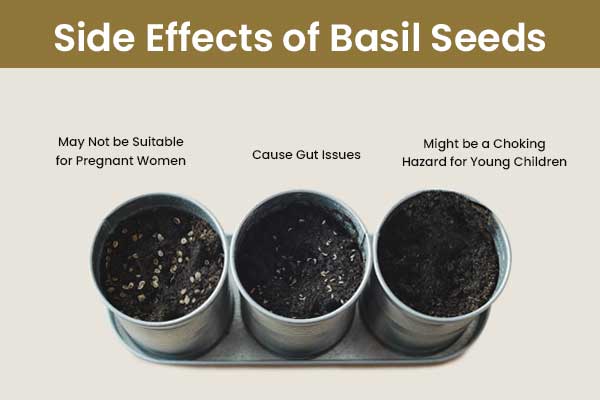What are the safety measure of using Basil?
Interactions of Basil with Drugs
Interaction refers to a potential risk that could develop inside the human body when two or more drugs or products, interact with one another. This could result in certain unwanted health conditions. There are certain drug categories whose drugs interacts with basil such as:
- Antihypertensive drugs– Basil is reported to decrease blood pressure in some consumers. Taking basil along with a high blood pressure drug could result in excess drop in your blood pressure which increases the risk of several unusual effects. Such antihypertensive drugs include enalapril (Vasotec), valsartan (Diovan), amlodipine (Norvasc), furosemide (Lasix), captopril (Capoten), losartan (Cozaar), diltiazem (Cardizem), hydrochlorothiazidee (HydroDIURIL), and several others.
- Anticoagulant/Antiplatelet drugs– The oil and extract of basil slow down the blood clotting. Intake of basils along with drugs that resist blood clotting could increase the risk of bruising and bleeding. Drugs that decreases blood clotting includes clopidogrel(Plavix), enoxaparin(Lovenox), warfarin (Coumadin), aspirin, dalteparin(Fragmin), heparin, ticlopidine(Ticlid), and several others.
Precautions and warning before using Basil

Although being a natural herb that is used for a number of edible as well as medical applications, there are certain precautions that an individual must consider in order to avoid complications during Basil consumption. Such medical conditions could interfere with basil working and could worsen the state of condition causing complicated consequences such as:
- Pregnancy– Basil is generally considered safe for a pregnant woman when consumed in a typical food amount. However, larger doses of basil are expected to be harmful because it contains a chemical that has potency to cause liver cancer, as per studies.
- Breastfeeding– Basil is generally considered safe for a breastfeeding woman and nursing child when consumed in a typical food amount. However, larger doses of basil are expected to be harmful. It contains a chemical that has potency to cause liver cancer, as per studies.
- Surgery– Basil oil and extract and potency to slow down the blood clotting. As per theories, use of basil must be avoided 2 weeks before undergoing any surgery as it can cause excess bleeding during operation.
- Low blood pressure– People with low blood pressure condition must avoid basil intake as it has hypotensive properties.
- Bleeding Disorder– People dealing with easy bruising or bleeding conditions must avoid consuming basil due to its property of resisting blood clots thereby resulting in excess bleeding.
- Children– Basil is generally considered safe for children when consumed in a typical food amount. However, larger doses of basil are expected to be harmful. It contains a chemical that has potency to cause liver cancer, as per studies.
Side effects of using Basil

Basil is generally considered safe when taken under an observatory amount and for a short term. However as discussed earlier, there are several drugs and medical conditions that could cause unusual side effects during basil intake that includes:
- Easy bruising/bleeding
- Slow blood clotting
- Low blood pressure
- liver disorder or cancer
- and several other
It is advisable to consult a doctor regarding all the possible side effects associated with Basil and inform the doctor or get immediate medical attention as soon as an individual identifies any.
OVERVIEW
- There are several drug categories which interact with basil in a negative way which must be informed and discussed with the doctor before its consumption.
- Several health conditions must also be considered before intake of basil to avoid complications.
- Due to such interactions and high intake of basil, several side effects are identified which must be informed to the doctor right away if observed.
REFERENCES:
- https://www.healthline.com/nutrition/basil
- https://www.wellcurve.in/blog/basil-sabja-seeds-benefits-nutrition-side-effects/
- https://www.webmd.com/vitamins/ai/ingredientmono-303/basil
- https://www.britannica.com/plant/basil
- https://www.healthline.com/nutrition/basil#nutrition
- https://www.medicalnewstoday.com/articles/266425
- https://www.rxlist.com/basil/supplements.htm
- https://www.tasteofhome.com/collection/types-of-basil/#:~:text=Sweet%20basil%20is%20the%20most,sweet%20but%20slightly%20spicy%20flavor.
For more details, kindly visit below.